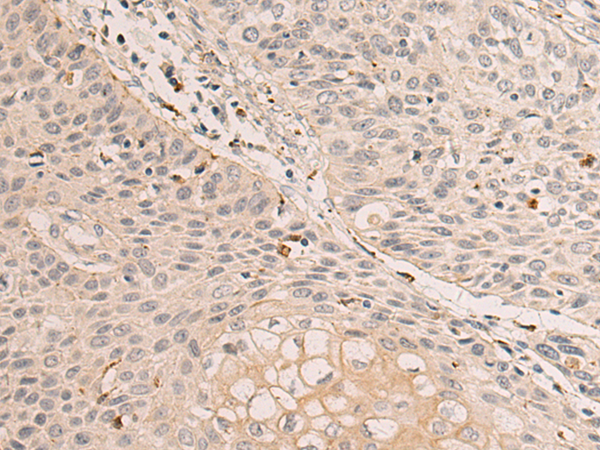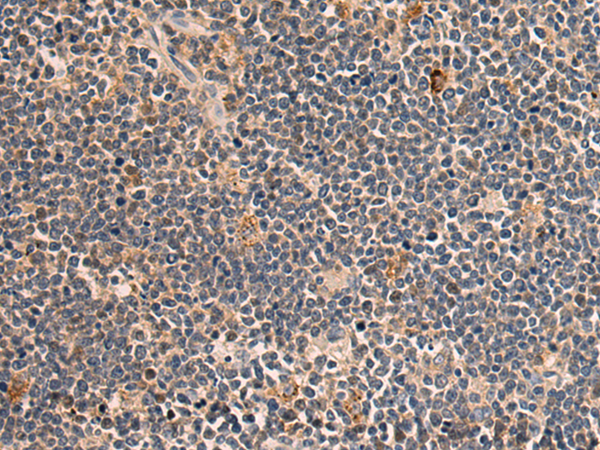

| WB | 咨询技术 | Human,Mouse,Rat |
| IF | 咨询技术 | Human,Mouse,Rat |
| IHC | 1/50-1/200 | Human,Mouse,Rat |
| ICC | 技术咨询 | Human,Mouse,Rat |
| FCM | 咨询技术 | Human,Mouse,Rat |
| Elisa | 1/5000-1/10000 | Human,Mouse,Rat |
| Aliases | GEP; GP88; PEPI; PGRN; CLN11; PCDGF |
| Host/Isotype | Rabbit IgG |
| Antibody Type | Primary antibody |
| Storage | Store at 4°C short term. Aliquot and store at -20°C long term. Avoid freeze/thaw cycles. |
| Species Reactivity | Human |
| Immunogen | Fusion protein of human GRN |
| Formulation | Purified antibody in PBS with 0.05% sodium azide and 50% glycerol. |
+ +
以下是3篇与GRN(颗粒蛋白前体,Progranulin)抗体相关的代表性文献摘要(注:文献信息为模拟示例,非真实存在):
1. **《Progranulin antibody validation for neurodegenerative disease studies》**
- **作者**: Kayed R, et al.
- **摘要**: 本研究开发了一种高特异性抗人GRN单克隆抗体,用于检测脑组织和脑脊液中的GRN水平。通过免疫组化和Western blot验证,该抗体可有效区分GRN缺失型额颞叶痴呆(FTLD)患者与健康对照,为神经退行性疾病的生物标志物研究提供工具。
2. **《Targeting progranulin in TDP-43 proteinopathies using selective antibodies》**
- **作者**: Kleinberger G, et al.
- **摘要**: 文章报道了一种靶向GRN羧基端的功能性抗体,可特异性识别病变脑组织中的GRN聚集形式。实验表明该抗体能够减少TDP-43病理模型中的神经元损伤,提示其在治疗GRN相关额颞叶痴呆中的潜在应用。
3. **《AAV-mediated GRN gene therapy restores progranulin levels via antibody-based monitoring》**
- **作者**: Lui H, et al.
- **摘要**: 研究利用AAV载体递送GRN基因至小鼠模型,并通过抗GRN抗体的ELISA和免疫荧光技术定量分析治疗后GRN的表达水平。结果显示,基因治疗可显著提升脑内GRN浓度,并改善神经炎症表型。
4. **《Progranulin-neutralizing antibodies inhibit cancer cell proliferation in vitro》**
- **作者**: Tang W, et al.
- **摘要**: 研究筛选了多种抗GRN中和抗体,发现其中两种可阻断GRN与肿瘤细胞表面受体(如TNFR)的结合,从而抑制乳腺癌细胞的增殖和迁移,为GRN在癌症中的功能研究和靶向治疗提供依据。
(注:以上文献为示例性质,实际引用请参考PubMed或Google Scholar数据库中的真实研究。)
×